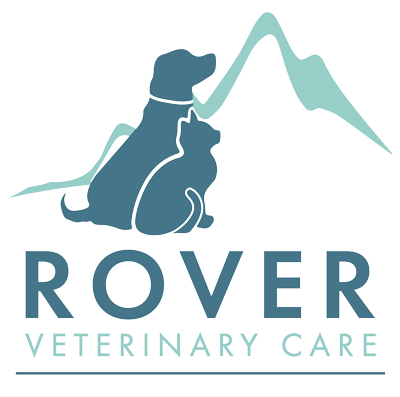Choosing the Best Farewell for Your Furry Friend: Natural Death or Euthanasia

Choosing the Best Farewell for Your Furry Friend: Natural Death or Euthanasia

Saying goodbye to a pet is one of the most painful experiences for any pet owner. The question of whether it's better for a pet to pass away naturally or to choose euthanasia is a deeply personal and oftentimes heart-wrenching decision. In this blog, we'll discuss the complexities and considerations involved, helping you make an informed choice that reflects the best interests of your beloved companion.
Compassionate Euthanasia: A Controversial Topic
Euthanasia, or "mercy killing," has been a hotly debated topic in human ethics and is no less controversial in the context of veterinary care. The notion of playing a hand in ending a life, even to relieve suffering, can be fraught with emotional, religious, and moral implications. Yet, in the realm of pet care, the decision often boils down to one of compassion. When a pet's quality of life is compromised beyond hope of recovery, is it kinder to step in and prevent further suffering?
Ethical Considerations
The principle of euthanasia rests on the idea of preventing prolonged suffering in terminally ill or critically injured animals. The key ethical concerns revolve around the autonomy of the pet (which is decided by the owner), the principle of non-maleficence (not inflicting harm), and the balance between end-of-life welfare and personal attachment.
Psychological Impact on Owners
It's important to consider the anticipatory grief and guilt that can come with the decision to euthanize a pet. Owners must navigate through complex emotions to determine if taking the life of their beloved pet is the final loving act they can provide.
The Natural Death Experience
On the flip side, some pet owners advocate for allowing their animals to die naturally. It's seen as the course of life, untouched by human intervention. This approach can offer a sense of acceptance, allowing nature to take its course and providing closure for some owners.
Hospice for Pets
An emerging concept in pet care, pet hospice, provides end-of-life comfort care without attempting to prolong life through aggressive medical measures. This approach can help pets pass away naturally and peacefully, with the aid of pain relief and other supportive therapies.
The Emotional Journey
For owners who opt for a natural death, the emotional aspect of the process becomes a personal matter. Observing a pet's gradual decline can be both painful and cathartic, allowing for a more natural transition that some find solace in.
Making the Decision
Ultimately, the decision to euthanize a pet or allow a natural death is unique to every owner and their pet's circumstances. Considerations such as the pet's condition, quality of life, and the family's emotional readiness play a significant role in the choice. Consulting with a veterinarian, who can provide an objective perspective and discuss all available options, is crucial in the decision-making process.
Evaluating Quality of Life
An honest assessment of the pet's day-to-day life is critical. Are they in pain? Can they eat, move, and carry out other basic functions comfortably? Quality of life scales can help quantify and compare these crucial factors.
Communication with Veterinary Professionals
Open and transparent communication with your veterinarian is vital. They can offer insight into your pet's prognosis, the potential outcomes of various treatment paths, and their professional recommendation.
Personal Values and Beliefs
Your individual values, religious beliefs, and the role your pet plays within the family will inevitably influence your decision. Take the time to reflect on what feels right for you and your pet.
In-Home Euthanasia: A Gentle Goodbye
For many pet owners, the prospect of their pet's last moments occurring in the familiar and comforting environment of their own home is a compelling argument for euthanasia. In-home euthanasia services can facilitate a peaceful and respectful end-of-life experience, surrounded by loved ones.
The Comfort of Home
Pets are often more relaxed and less stressed in their home environment, and in-home euthanasia allows them to leave the world in a familiar and safe place.
Preparing for the Process
It's important to prepare emotionally for the euthanasia process if you choose this route. Discuss what to expect with the veterinarian, plan who will be present, and think about how you'll handle your pet's remains.
After the Goodbye
The decisions don't end at the final moments. You must decide what to do with your pet's remains, how to manage the grieving process, and whether to consider adding a new pet to your life.
Memorial and Burial Considerations
Your choice between cremation and burial is a deeply personal one. Some families find comfort in keeping their pet's ashes, while others prefer a more traditional burial. Consider the legal and practical aspects of each decision.
Coping with Loss
Grief is a natural response to losing a pet. Seek support from friends, family, and support groups. Remember to take care of your own well-being during this difficult time.
The Possibility of a New Pet
Deciding when, or if, to bring a new pet into your life is a significant post-loss consideration. Each owner will be ready at their own pace, and the arrival of a new pet should never feel like a replacement for the one you've lost.
Final Words
The decision between natural death and euthanasia is undoubtedly one of the most challenging choices a pet owner can face. Every pet, situation, and owner is unique, and there is no one-size-fits-all answer. By weighing the options carefully, consulting your values, and aligning with the best professional advice, you can honor your pet's life with a dignified and loving farewell.
Remember, whether in life or death, the most important gift we can give our pets is the unconditional love and care that they've provided us throughout their lives. If you're considering in home euthanasia in Reno, NV, contact Rover Veterinary Care today to schedule an appointment.
